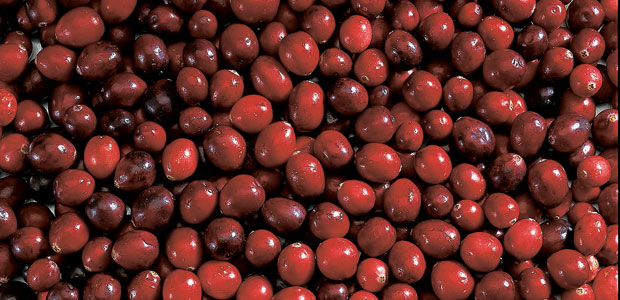Advertisement
Urinary Tract Infections
Burning, frequency, urgency, and pain: these are the unpleasant symptoms of a urinary tract infection (UTI). If you have ever had one, you know how uncomfortable it can be. Approximately 40 percent of women and 12 percent of men will experience at least one urinary tract infection during their lifetimes. Normally our urine is sterile … Continued

Burning, frequency, urgency, and pain: these are the unpleasant symptoms of a urinary tract infection (UTI). If you have ever had one, you know how uncomfortable it can be. Approximately 40 percent of women and 12 percent of men will experience at least one urinary tract infection during their lifetimes.
Normally our urine is sterile and does not contain any bacteria, viruses, or fungi. However, if these invaders enter the urethra (the tube that carries urine out of the body), they can travel up into the bladder, creating an infection. Over 90 percent of UTIs are caused by the bacteria called Escherichia coli (E. Coli), which is present in the colon and rectal area.
Who’s At Risk?
Women are particularly prone to UTI for several reasons. Our urethra is close to the rectum, allowing easy access for bacteria. Pregnancy increases risk because the growing baby presses on the bladder, which may prevent complete bladder emptying. Menopause also increases the likelihood of UTI as the decline in estrogen levels leads to thinning of the urinary tract, again making it easier for bacteria to break through. For some women this can become a recurrent problem. Nearly 20 percent of women who have a UTI will have another; 30 percent of those will have yet another.
Men can also get these infections and enlargement of the prostate gland is a risk factor because the prostate may put pressure on the urethra and bladder. Other risk factors include a suppressed immune system (diabetes, AIDS, cancer, and stress) and catheterization.
Treatment of a UTI most often involves antibiotic therapy, which carries with it various health risks. The troubling side effects may include nausea, diarrhea, stomach cramps, and yeast overgrowth. The overuse of antibiotics is now recognized as a major factor in the development of antibiotic resistance. The bugs are becoming stronger than the drugs, leaving people vulnerable to attack by bacteria. As with most health problems, prevention is the key.
A Berry Good Treatment
For centuries cranberries have been a popular folk remedy for urinary health. Hippuric acid does have bacteria-fighting properties, but science now shows that it’s the antioxidant flavonoids called proanthocyanidins, or condensed tannins, that prevent the adherence of bacteria to the walls of the urinary tract.
Over the past few decades, several clinical studies have found cranberry juice beneficial in preventing UTI. A major drawback, however, is that the amount of juice required is quite large – 750 mL three times daily (more than two litres of the juice a day). Not only is this amount difficult for most people to drink, but many cranberry juice cocktails contain a fair amount of added sugar. For these reasons, supplements containing the goodness of cranberry offer a significant advantage.
Recent research has focused on concentrated cranberry extract. This extract has been clinically studied and found to be effective in the prevention of UTIs in several trials. A study published in the Canadian Journal of Urology (2002) compared the effects of pure cranberry juice, cranberry extract, and placebo in the prevention of UTI in a group of 150 women at high risk of infections. Both the pure juice and tablets had a significant impact on reducing UTIs, but the cranberry tablets provided the most effective method.
A pilot study is currently underway at McMaster University in Ontario comparing cranberries to prescribed antibiotics for the acute treatment of UTIs. If cranberries prove to be an effective treatment for UTI, they could help reduce the need for antibiotics and their resulting side effects and health consequences.
The US National Institute of Health and the National Center for Complementary and Alternative Medicine have launched an initiative to provide approximately $2.6 million US in grants for research into cranberries. This research may lead to definitive trials to determine the appropriate use and benefits of cranberry for the prevention and/or treatment of UTI or other conditions.
For Better Bladder Health Consider the Following Tips:
- Drink eight to 10 glasses of water each day or more if you are exercising or spending lots of time in the sun. Dehydration concentrates the urine and increases the risk of infection.
- Incorporate more cranberries and blueberries into your diet.
- Urinate regularly, as you feel the need. Avoid holding in urine for a long time.
- Wipe from front to back after going to the bathroom to prevent bacteria around the rectum from entering the urethra.
- Cleanse your genital area before and after sex.
Natural Help for a UTI
While the evidence is strongest for cranberries, these botanicals are also helpful:
- Blueberries contain the same beneficial components as cranberry (at lower levels) and may act similarly to prevent bacterial adhesion in the bladder.
- Goldensea has bacteria-fighting properties.
- Juniper increases urine volume, which may help to flush bacteria out of the bladder.
- Uva-Ursi is an antibacterial herb approved in Germany for UTI.




